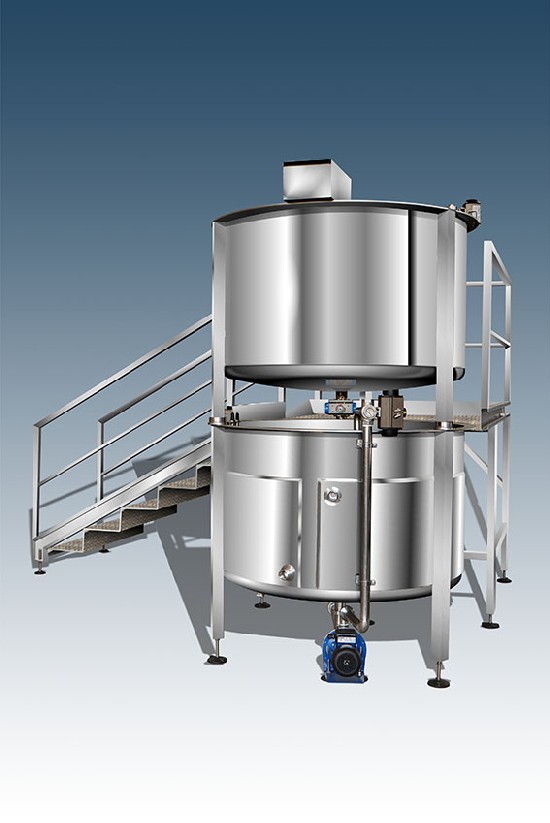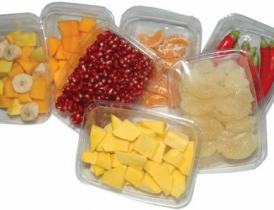02. Project Overview
FoodManufuture concept will be based on the following concrete objectives:
- Strong, challenging and shared visions for innovation, research and technology transfer
- Gap analyses of the visions in order to identify gaps and barriers in the existing European research infrastructure
- A Conceptual Design report describing the final advice to policy makers including assessment of the technical and financial feasibility of the new research infrastructure
In line with the needs for current readiness to meet the grand challenges the main focus of the FoodManufuture project will take its offspring in addressing the use of manufacturing technologies in terms of:
– Forward-looking use of resources
Energy and material saving, alternative material sources
Valorisation of by products
Scientific human resources, education & training
– Efficient and innovative production
Cost efficiency
Flexible production and services, automation and/or monitoring systems
New functionalities, including smart packaging, hygiene control, etc.
Development of innovative and high quality food products that meet the consumers needs
– Smart management
Business models
Food chain Management, logistics and retail
Overall sustainability of the food chain
Innovative entrepreneurship
 The above issues are in line with priorities identified by the ETPs MANUFUTURE and Food for Life. In this project the food manufacturing sector is considered as the main focus, but retail, primary production and transport will be included when relevant as well as consumers‟ needs and expectations will be underlining the approach.
The above issues are in line with priorities identified by the ETPs MANUFUTURE and Food for Life. In this project the food manufacturing sector is considered as the main focus, but retail, primary production and transport will be included when relevant as well as consumers‟ needs and expectations will be underlining the approach.
The manufacturing solutions sector will be providers of technical solutions with large potential of implementation in the food sector, such as equipment, services and materials i.e. process equipment, automation systems, manufacturing robots, production technologies, ad-line/on line sensors, Information and Communication Technology (ICT) solutions, management systems, novel packaging materials etc.
The final conceptual design study will include figures, data and other relevant information, which will provide public and private sectors decision makers with a sound basis for agreeing on the most promising, technical and economic feasible concept of an Infrastructure with European dimension that will speed up innovation in the food sector.
The dissemination plan aims at ensuring the awareness and the involvement of the stakeholders. FoodManufuture will aim to involve all actors in the innovation cycle and build on the vision of a European Innovation Union. In particular, the food sector and the manufacturing solutions sector will be key stakeholders involving both large and small companies. The real industrial needs will be identified through first hand contacts and matched with the European state-of the-art knowledge. Scientific excellence will be identified from the HighTech Europe database, the Novel Q project, from the ETPs Food for Life and MANUFUTURE widespread networks and will be discussed and validated at national and European level.
Quality and effectiveness of the support mechanisms and associated work Plan
The FoodManufuture overall strategy of the work plan has 5 work packages (WPs) and an integrated, trans-sectorial approach. The management framework will be handled in WP 1, which will ensure proper decision making, proper timing, proper communication and proper resource management in order to make the project run smoothly and ensure timely reporting. Vision scenarios will be performed in WP2. Priority areas will be defined in a mapping process.
Focus groups will be created for identified areas. Through mutual inspiration between stakeholders from innovative businesses, large companies and SMEs, scientists and other stakeholders from the food sector and the manufacturing solutions sector, these groups will create futuristic scenarios for desirable objectives, capable of boosting the food sectors competitiveness, via knowledge based, existing and novel sustainable manufacturing technologies, business models and knowledge and technology transfer activities. The focus groups composition will ensure all the necessary competences and knowledge and also a significant European coverage, by involving the large network of members from the two ETPs, with strong representation at national and regional levels including the project team and invited advisors. The members will be recruited from the FoodManufuture Advisory Group and project beneficiaries.

Gap Analyses will be performed in WP3. The general objective of this work package is to identify the gaps and barriers in the existing research infrastructures including: facilities, resources and services necessary to serve the current and future needs of the food industry with innovative and sustainable manufacturing solutions for fulfilling the vision scenarios developed for the food factory of the future in WP2. The Gap analyses will be performed in the 4 Working Groups:
When appropriate the analyses will run jointly in order to avoid overlapping results. Finally the analyses will be verified by the National Platforms of the 2 ETPs and by a European Stakeholders event of the two ETPs in WP5.
- WG 3.A: Science & Technology for Food & Manufacturing
- WG 3.B: Industry, Knowledge Transfer, and Education
- WG 3.C: Management Systems and Business Models
- WG 4.D: Economic, Social and Environmental Sustainability























